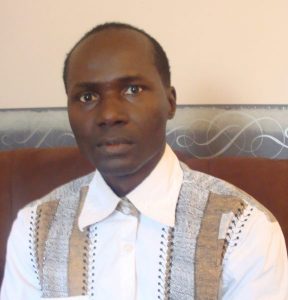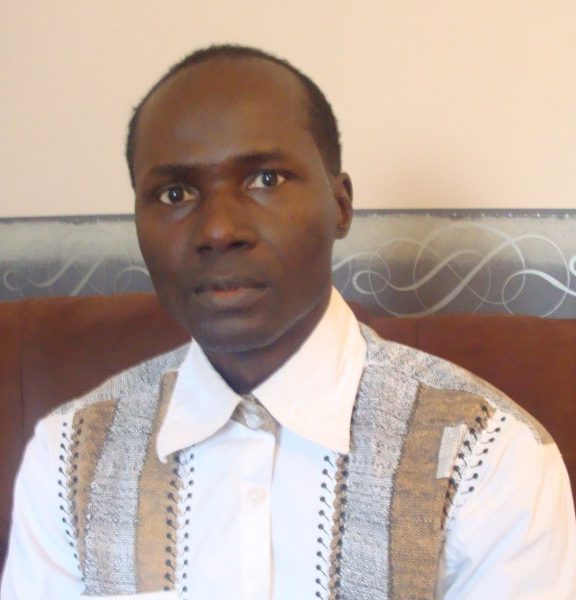
(JollofNews) – It is lamentable that oppression is common in many parts of the world, particularly in Africa where it is the order of the day and condoned by many.
This outrageous, provocative act takes various forms, such as harassment; humiliation; torture; arbitrary arrest; detention without trial; unlawful dismissal of workers; suppression of dissent; hoarding of information of public interest; infringement on freedom of expression; unlawful destruction or seizure of properties; and the like. In a nutshell, any act of victimization, brutalization, encroachment or violation of rights can be regarded as oppression.
The questions arise now: Why do human beings who are endowed with mental faculty to reason and can hence distinguish between right and wrong or moral and immoral oppress each other, aid and abet oppressors or condone oppression despite the fact that none of them wants to be oppressed or see his loved one oppressed? Is it that oppressors and their enablers and those who condone oppression are ignorant of the laws or rules of their countries or societies?
Ignorance of laws or rules can be dismissed as an excuse for oppression in many cases, based on the fact that most oppressors and condoners of oppression feel bad or get angry and cry foul or seek redress when they are oppressed or when they feel offended. If ignorance was responsible for their acts, they would not be aware when they or their loved ones are oppressed. So, ignorance may be a contributing factor but it is certainly not the only one.
Oppression may result from a mistake, for no man is infallible or perfect. Thus, one may oppress others inadvertently or accidentally. However, oppression cannot be termed as a mistake if it recurs or happens repeatedly because mistakes cannot always be allowed or accepted.
Egocentricity or selfishness and opportunism are among the factors responsible for committing acts of oppression and condoning oppression. Greed and the desire to defend or safeguard an interest or realize an ambition prompt some people to oppress others or turn blind eyes and deaf ears when others are oppressed. Such opportunists are ready to bulldoze anybody they perceive as a hindrance or treat blatant acts of oppression with indifference, as they are blinded by greed and consumed by desire. Some of them always try to portray themselves as democrats, peace-lovers and patriots, or even saints, while condemning the acts of their perceived rivals or opponents, which is utterly illogical. After falling from grace to grass, some of those opportunists start denouncing oppression, or even join the bandwagon of the people they demonized while enjoying privileges. What an irony! I advise them to rethink, for the world would not last even a day if everybody behaved like them. I would also like to remind them that people are not fools as they consider them to be, and that he that knows not and knows not that he knows not is a fool.
Fear is one of the factors responsible for oppression or condoning oppression. This is particularly the case with people living under a dictatorial rule. Some people oppress others to gain recognition of their bosses whom they fear more that they fear God the Almighty. These people behave like zombies or marionettes. They are always willing to do the dirty job of oppression, even without receiving instructions from their bosses. They are ready to do any nasty thing they believe can help defend the interest of their bosses or please them.
I advise these oppressors to think of tomorrow and bear in mind that their bosses will not be able to protect themselves in the next world, let alone protecting them or interceding with God on their behalf. It is very unwise for them to dance to the tune of their mortal bosses whose powers are limited and short-lived, or seek their pleasure to the extent of incurring the wrath of God the Omnipotent, Omniscient, Omnipresent and Immortal. If they happen to be non-believers, as the case may be, let them think about what will happen to them here on earth when their bosses are no longer around or when they quit their dirty jobs. Do they think that their bosses will stay in their positions forever? Have they ever thought about dismissal, retirement or falling out of favour of their bosses after doing the dirty job and becoming notorious? Can these eventualities be ruled out totally? Whatever the case may be, it is safer and more prudent to treat members of the general public nicely to earn their respect and love than to do a dirty job to please one’s boss and gain notoriety.
Owing to their fear of brutal dictators, some people remain silent when they see others oppressed. This is one of the aims all dictators want to achieve. Dictators try to instil fear in the hearts and minds of people so that no one would dare to challenge or rise up against them. Hence, we help them to achieve their objective by condoning oppression or keeping quiet as though things are normal when others are being oppressed. For people to disentangle or free themselves from the clutches of a dictator, it is imperative that they try to surmount or overcome their fear and take the bull by the horns. The following saying of our venerable prophet (may peace be upon him) can be used as a guiding principle in this regard: “Let anyone who sees an evil try to change/fight it using his hand. If he is not able to, let him use his tongue. And if he is unable to, he can use his heart but that is the weakest (lowest) degree of faith.” Thus, oppression is incontrovertibly evil and should not be condoned from the Islamic point of view.
Among the factors responsible for oppression is megalomania or excessive feeling or self-importance. Some people, by virtue of their professions, positions or status, feel too haughty or proud and hence despise others whom they term as nonentities and the riffraff of their society, especially when they find themselves in positions which they never dreamt of occupying in life. This is why it is not uncommon to hear the foolish rhetorical question “Do you know who I am?” and the scornful, malicious utterance “He will know me. I will teach him a lesson that he will never forget”. These people always want to show off to the extent of oppressing others. They believe that they can behave anyhow and go scot-free. Thus, they metamorphose into sadists who take very great pleasure in victimizing or brutalizing people as a way of showing their power and importance. These scoundrels and rascals are so intoxicated with power and arrogant that they would not listen to anybody and no amount of preaching can move them. They belong to the group of people who the Holy Qur’an says are deaf, dumb and blind. Members of this group repent only after losing their privileges or after they have started paying the price of their misdeeds. Ironically, some of them turn into preachers, making citations from the Holy Scriptures, condemning the very evil acts they used to commit without any sense of remorse, and championing virtues and values which were conspicuously absent from their vocabulary lists while they were enjoying privileges. To earn public sympathy, some of them resort to befriending former enemies or those they held in contempt and used to victimize or brutalize. I would like to put it to those rogues that it is good to repent but repentance in despair is no repentance. This kind of repentance is insulting to God’s intelligence, to say the least. In Islam, repentance is only acceptable when it is done voluntarily in good faith, not when one is helpless or desperate and has no option or choice. It is more reasonable and acceptable to repent oppressing people when one is in a privileged position or status than when he loses that position or status and becomes despondent. Repentance in the former case is voluntary, whereas it is dictated by circumstances in the latter. Additionally, repentance should be accompanied by apology to victims, not by pretence of innocence. Above all, it is advisable to behave like a human being and help people or treat them with justice and fairness while enjoying certain privileges, or at least leave them alone. In so doing, one may save oneself from danger, or earn the sympathy of the general public when he is in trouble or when misfortune befalls him. If, on the other hand, he misbehaves by oppressing people or shamelessly, senselessly and remorselessly serving as a defender or a propagandist of an oppressor, victims of oppression and the general public may shout “Good riddance!” or rejoice when he is in trouble or when he loses his privileges. No matter how hard his friends, relatives or close associates try to defend or exculpate him, they find it extremely difficult or impossible to convince the public or make people believe that he is a good person, and not to talk of convincing God the All-knowing that he is innocent.
My dear reader, oppression does not pay, for it can easily backfire. No one is immune in a society where oppression prevails. Anybody can have his turn at any time. Besides, the masses may resort to violent means of extricating themselves or take the law into their own hands when oppression becomes unendurable or unbearable, which could have deleterious, disastrous and undesirable effects on a country as a whole. For these reasons, Allah the Almighty has stated explicitly in the Glorious Qur’an that He does not like oppressors. Moreover, oppression is synonymous with cruelty or lack of mercy, and Prophet Muhammad (may peace be upon him) cautioned us against wickedness saying that Allah the Almighty would not shower His mercy on those who fail to treat their fellow human beings with mercy. Hence, anyone who has aided or abetted an oppressor has a share of his sins and owes his victims an apology, no matter what impression of himself he and his loved ones try to give afterwards.
Oppression should not be treated with indifference. Earnest, unflinching efforts should be made to combat it or root it out. In fact, combating oppression is a socio-religious obligation. A situation where oppression is prevalent can be likened to jungle life where there are no laws or rules to guide actions. As human beings, we should be sober or wise enough to avoid such a situation. We can achieve this by using the golden rule “Do onto others as you would like others to do onto you” and the Hadith (saying) of our venerable prophet (may peace be upon him) “Wish for others what you wish for yourself” as guiding principles.
On a final note, I would like to state as a reminder that we are all mere mortals made of blood, bones and flesh and share the seven characteristics of living organisms, regardless of our professions, positions and status; that man’s power is very much limited and ephemeral; that no condition is permanent; that it is Allah the Almighty who elevates people through their fellow human beings; that it is folly and uncivilized to oppress each other; and that all oppressors are bound to perish sooner or later if they fail to repent their acts and kick out their filthy habit, as Allah the Almighty hates them.
By Ebou Gaye
NB: This article was first published in the Daily Observer newspaper of The Gambia in 2004 and later published in online newspapers.





